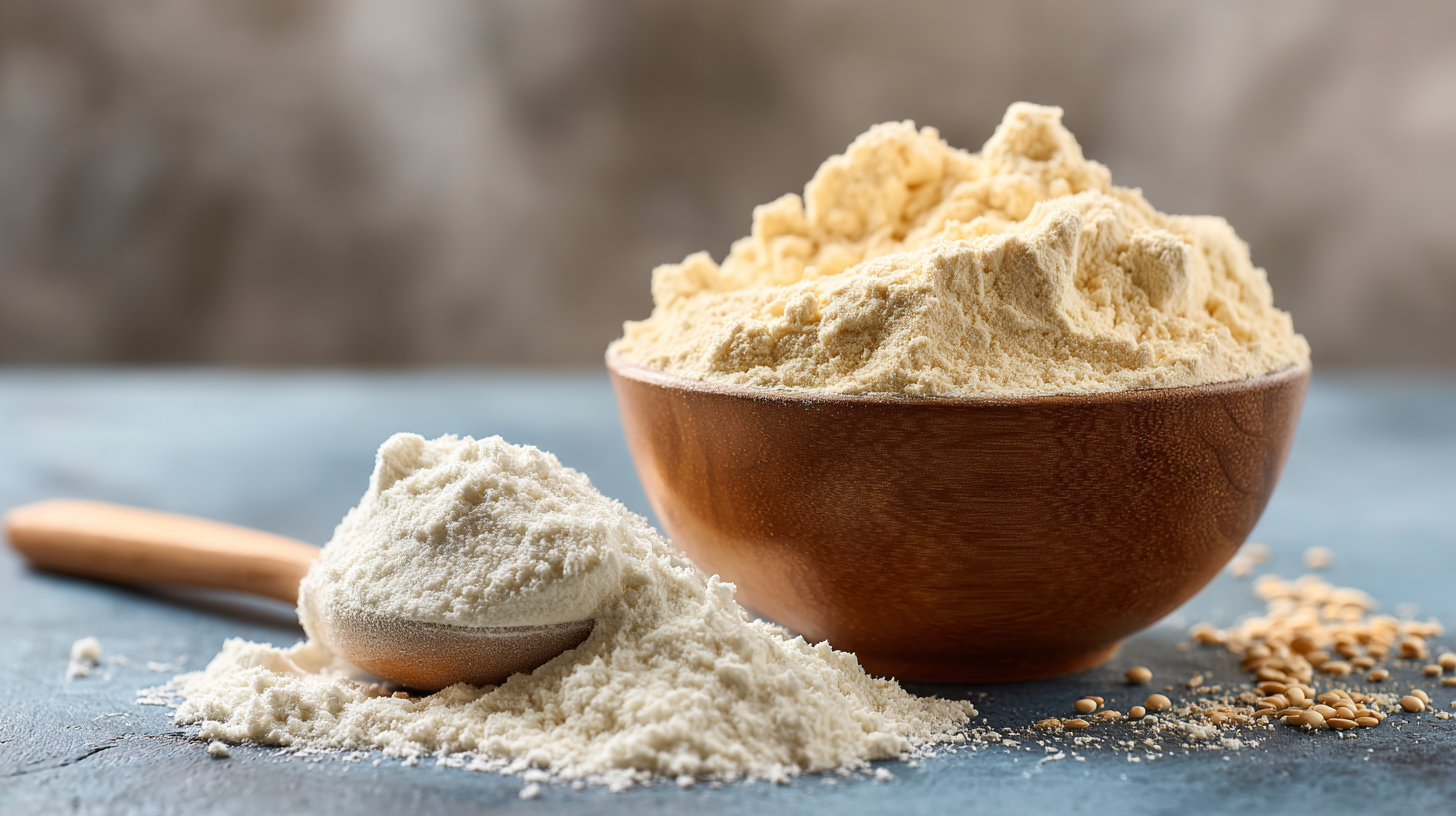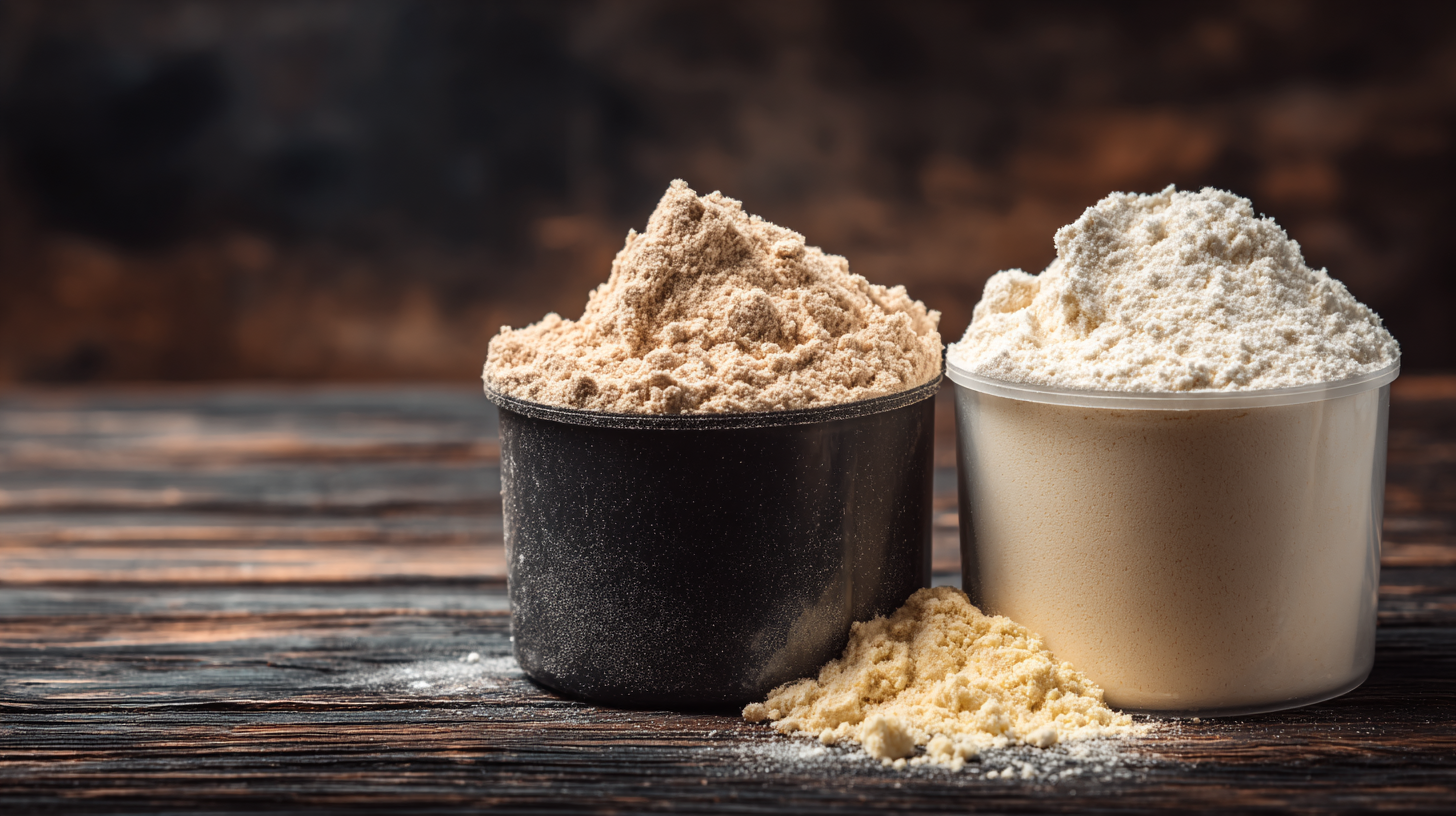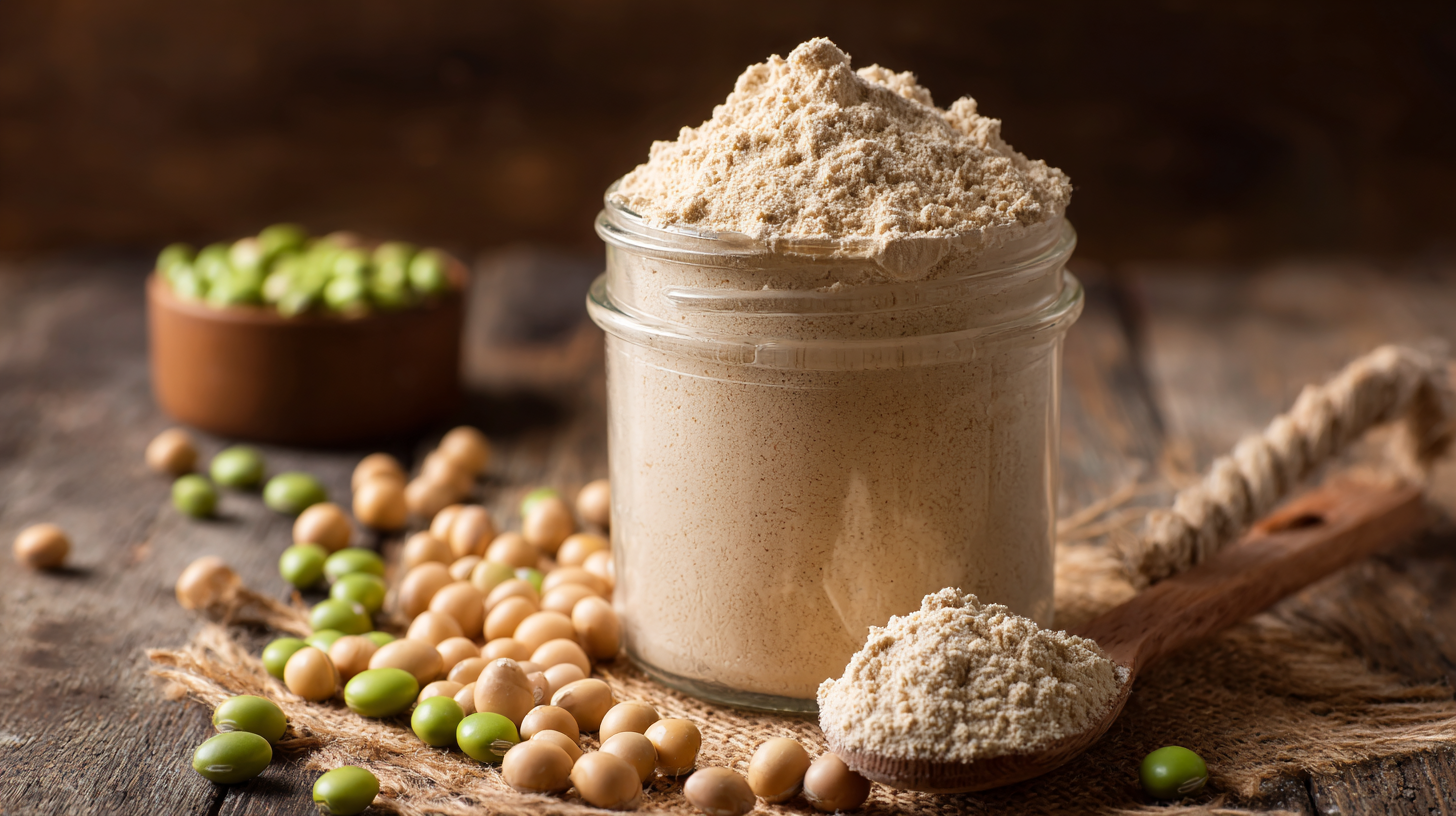In the ever-evolving fitness landscape, the choice between Soy Isolate Protein Powder and Whey Protein remains a hot topic among nutrition enthusiasts and athletes alike. According to a report by Grand View Research, the global plant-based protein market is expected to reach $40.5 billion by 2025, with soy protein being a significant contributor due to its high amino acid profile and digestive benefits. Furthermore, studies published in the Journal of Nutrition reveal that Soy Isolate Protein Powder can be just as effective as whey in promoting muscle growth and recovery when combined with resistance training. As fitness goals become more personalized, understanding the unique benefits and potential downsides of each protein source is essential for optimizing your nutrition and performance. This blog will delve into the key advantages of Soy Isolate Protein Powder and compare it to Whey Protein to help you make an informed decision that aligns with your fitness ambitions.

When it comes to building muscle and enhancing recovery, soy isolate protein is often an overlooked powerhouse. Research highlights that soy protein can be as effective as whey protein in promoting muscle growth due to its rich amino acid profile, particularly for those engaged in resistance training. A study published in the American Journal of Clinical Nutrition found that soy protein consumption leads to a significant increase in muscle mass and strength when combined with exercise, making it a strong competitor in the protein supplement arena.

When it comes to choosing between soy isolate protein powder and whey protein, the advantages of whey protein are hard to overlook. Whey protein is lauded for its rapid absorption, making it an ideal choice for post-workout recovery. Studies indicate that whey protein can lead to a 25% greater increase in muscle protein synthesis compared to soy protein, thanks to its high levels of essential amino acids and fast digestion rates. This makes it particularly beneficial for athletes and fitness enthusiasts looking to optimize muscle recovery and growth.
In addition to its muscle-building properties, whey protein also offers significant immune system benefits. Research from the International Dairy Journal suggests that regular consumption of whey protein can enhance the production of immunoglobulins, thereby providing a boost to the body's immune response. This is especially advantageous for those engaging in intense physical training, as strenuous exercise can temporarily weaken the immune system.
**Tip 1:** For optimal muscle recovery, consider consuming whey protein within 30 minutes post-workout to maximize its absorption benefits.
**Tip 2:** If you’re concerned about lactose intolerance, select whey protein isolate, which contains minimal lactose and can be gentler on your digestive system.
**Tip 3:** Pair your whey protein with carbohydrates—like fruits or whole grains—for a more complete post-exercise meal that aids recovery and replenishes glycogen stores.
When it comes to choosing between soy isolate protein powder and whey protein, understanding their nutritional profiles is essential for achieving your fitness goals.
 Soy protein is a complete plant-based protein, rich in essential amino acids and packed with additional health benefits such as heart health improvement and reduced cholesterol levels.
It also contains beneficial phytonutrients that can aid in muscle recovery. On the other hand, whey protein, derived from milk, is known for its high biological value and rapid absorption, making it particularly effective post-workout to support muscle repair and growth.
Soy protein is a complete plant-based protein, rich in essential amino acids and packed with additional health benefits such as heart health improvement and reduced cholesterol levels.
It also contains beneficial phytonutrients that can aid in muscle recovery. On the other hand, whey protein, derived from milk, is known for its high biological value and rapid absorption, making it particularly effective post-workout to support muscle repair and growth.
Tip: If you're lactose intolerant or seeking a vegan option, soy protein is the optimal choice. It's also great for those looking to diversify their protein sources. Conversely, if you are focused on muscle gain and prefer faster absorption, whey protein might be the way to go.
Both protein powders have unique strengths. When deciding which one to incorporate into your diet, consider your fitness objectives, any dietary restrictions, and your personal preferences. Mix and match them according to your goals for a comprehensive protein intake that supports your active lifestyle.
When it comes to choosing the right protein powder, dietary preferences play a crucial role. For those following a vegan or vegetarian diet, soy isolate protein powder emerges as an excellent option. It not only provides a complete profile of essential amino acids but is also free from animal products, making it a perfect fit for plant-based diets. Plus, soy isolate is known for its ability to support muscle recovery and growth, aligning well with various fitness goals.
On the other hand, individuals who are lactose intolerant may also find soy protein an appealing choice. While whey protein is a powerful source of protein, it comes from dairy and can cause digestive issues for those with lactose intolerance. Soy isolate offers a lactose-free alternative, ensuring that everyone can get their protein without the discomfort. This makes it a versatile option for fitness enthusiasts with specific dietary restrictions, allowing them to fuel their workouts effectively while adhering to their nutritional needs.
When it comes to incorporating protein powders into your daily routine, both soy isolate and whey protein offer distinct advantages. According to the International Society of Sports Nutrition, whey protein is known for its fast absorption rate, making it an excellent post-workout choice. It provides all nine essential amino acids and has a high biological value, meaning your body can utilize it more effectively. A study published in the Journal of Nutrition found that whey protein can enhance muscle recovery and promote muscle growth when consumed after resistance training.
On the other hand, soy protein isolate serves as a great alternative for those who are lactose intolerant or following a vegan diet. Research from the American Journal of Clinical Nutrition indicates that soy protein can support muscle synthesis as effectively as whey, primarily due to its comparable amino acid profile. To incorporate soy protein into your routine, consider adding it to smoothies or baked goods. Meanwhile, whey can be mixed with water, milk, or added to oatmeal for a convenient protein boost. Whether you choose soy or whey, the key is to ensure you’re meeting your protein needs according to your individual fitness objectives.
| Nutritional Component | Soy Isolate Protein (Per 30g) | Whey Protein (Per 30g) |
|---|---|---|
| Calories | 100 kcal | 120 kcal |
| Protein | 27g | 24g |
| Carbohydrates | 2g | 3g |
| Fats | 1.5g | 1g |
| Vegan-Friendly | Yes | No |
| Digestibility | Moderate | High |
| Ideal For | Muscle building, Vegans | Muscle recovery, Post-workout |
